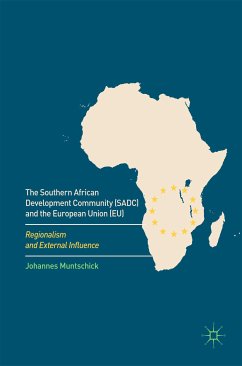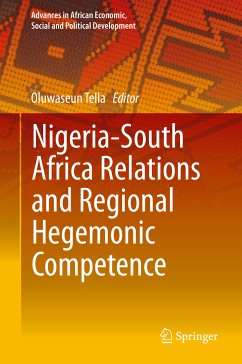
Beyond Peacebuilding (eBook, PDF)
The Challenges of Empowerment Promotion in Mozambique
Versandkostenfrei!
Sofort per Download lieferbar
72,95 €
inkl. MwSt.
Weitere Ausgaben:

PAYBACK Punkte
36 °P sammeln!
This book uses the concept of empowerment as a means to understand peacebuilding in Mozambique. In order to do this, it first traces the different discourses on 'empowerment' and proposes an analytical framework based on multiple levels of analysis and a dialectical view of power. Second, it examines how the process of state formation and, later, peacebuilding have shaped the spaces for local empowerment to occur in Mozambique. Finally, it offers a detailed analysis of a national policy called the District Development Fund (the '7 million'), designed in the context of decentralization and aime...
This book uses the concept of empowerment as a means to understand peacebuilding in Mozambique. In order to do this, it first traces the different discourses on 'empowerment' and proposes an analytical framework based on multiple levels of analysis and a dialectical view of power. Second, it examines how the process of state formation and, later, peacebuilding have shaped the spaces for local empowerment to occur in Mozambique. Finally, it offers a detailed analysis of a national policy called the District Development Fund (the '7 million'), designed in the context of decentralization and aimed at reducing poverty in this country. This case study helps reflecting on the long-term and derivative effects of peace both in institutional terms as well as at the level of the everyday. The holistic approach to empowerment offered in this book and its application in the case of Mozambique will be of interest to both academics as well as practitioners of peacebuilding and development.
Dieser Download kann aus rechtlichen Gründen nur mit Rechnungsadresse in A, B, BG, CY, CZ, D, DK, EW, E, FIN, F, GR, HR, H, IRL, I, LT, L, LR, M, NL, PL, P, R, S, SLO, SK ausgeliefert werden.












